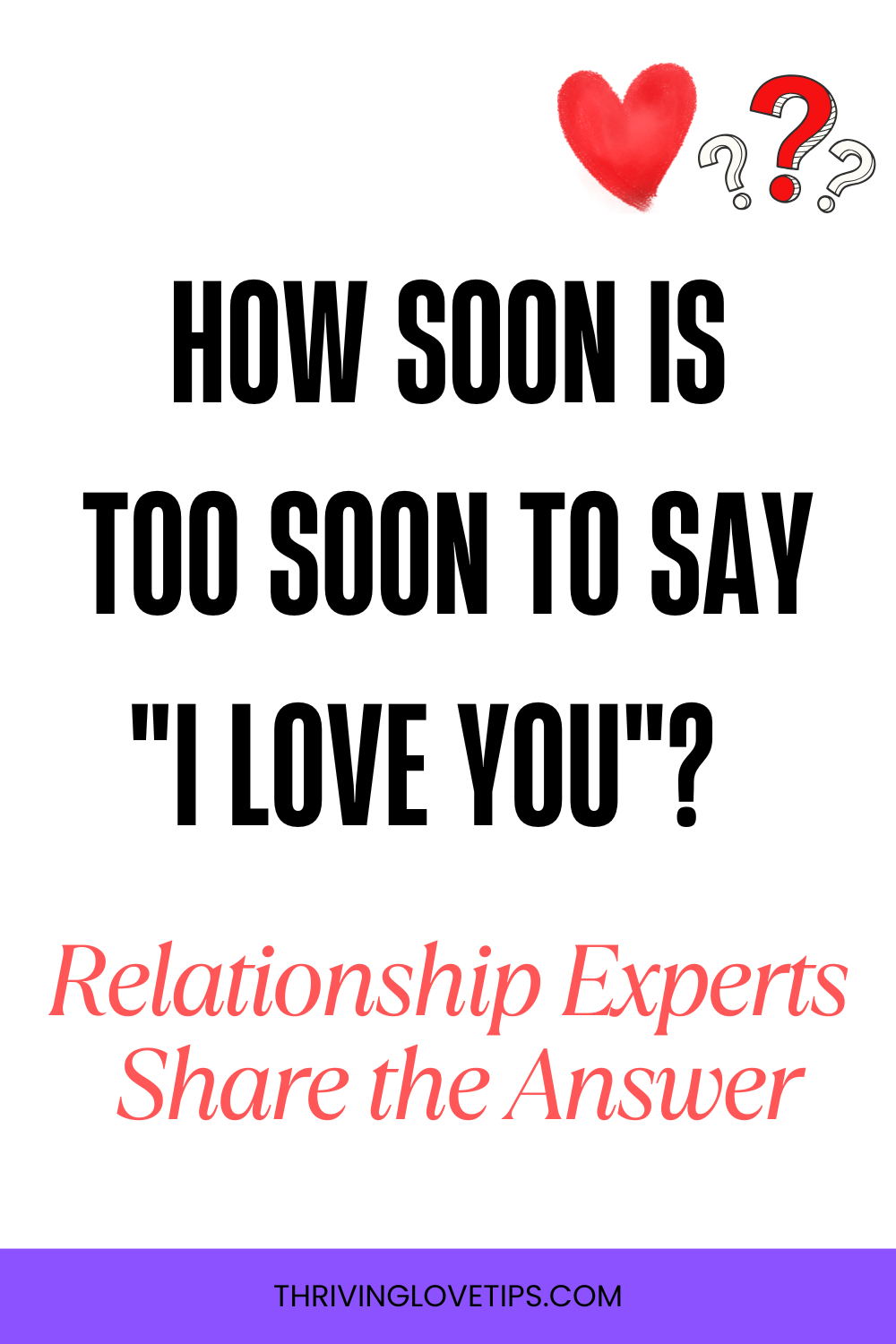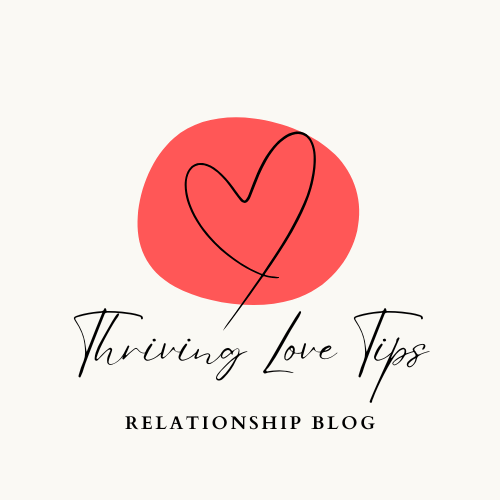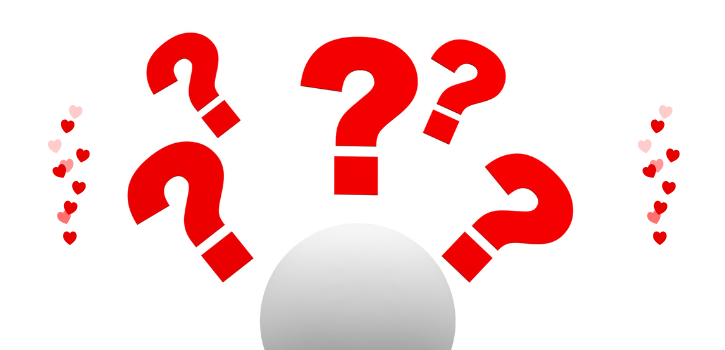Picture this: You’re curled up on the couch watching Netflix with someone who’s managed to infiltrate every corner of your thoughts. They laugh at your terrible jokes, they know exactly how you like your morning eggs, and when they smile at you, something inside your chest does this fluttery thing that feels suspiciously like joy mixed with terror. The words “I love you” are practically staging a revolt in your throat, demanding to be set free. But there you sit, paralyzed by the age-old question: Is it too soon?
If you’ve found yourself mentally rehearsing this conversation in the shower, crafting the perfect moment like you’re directing a romantic film, you’re not alone. The timing of the first “I love you” has become one of modern dating’s most anxiety-inducing milestones. Say it too early, and you risk being labeled as clingy or intense. Wait too long, and they might think you’re emotionally unavailable or just not that invested.
But what if the real question isn’t about timing at all? What if it’s about understanding what you actually mean when you say those three loaded words—and more importantly, whether you’re ready for everything that comes after?
The Brain Chemistry Behind Those Butterflies
Before diving into timing, it helps to understand what’s actually happening inside your head when you think you’re falling in love. According to neuroscientist Dr. Lucy Brown, who studies the brain patterns of people in love, that euphoric feeling isn’t just emotional—it’s biological.
“When you’re in the early stages of romantic love, your brain is essentially drunk on dopamine,” explains Dr. Brown. “This neurotransmitter creates intense focus, euphoria, and obsessive thinking about your partner. It’s the same chemical pathway involved in addiction, which explains why new love can feel so all-consuming.”
But here’s the catch: this chemical cocktail can make you feel like you’re in love before you actually are. Dr. Helen Fisher, anthropologist and love researcher, identifies three distinct brain systems: lust, romantic attraction, and attachment. “The ‘I love you’ moment should ideally occur when you’re transitioning from romantic attraction to attachment,” she notes. “That’s when your brain starts producing oxytocin and vasopressin—the chemicals responsible for long-term bonding.”
The problem? This transition doesn’t follow a schedule. For some people, it happens after a few weeks of intense connection. For others, it takes months of steady partnership. Learning to distinguish between chemical infatuation and genuine attachment is crucial before making any declarations.

When Your Timing Might Be Off
Relationship therapist Dr. Mark Williams has counseled hundreds of couples through the “I love you” phase, and he’s noticed some clear patterns in timing gone wrong.
You’re in crisis mode. “I see this a lot,” says Dr. Williams. “Someone goes through a breakup, a job loss, or family drama, and suddenly they’re ready to declare love for the first person who shows them kindness. But often, they’re really saying ‘I need you’ rather than ‘I love you.'”
You haven’t had a real fight yet. This might sound counterintuitive, but conflict is actually a crucial test of compatibility. “If you haven’t disagreed about anything meaningful—money, values, future goals—you probably don’t know each other well enough to love each other,” explains relationship coach Sarah Chen.
You’re performing love, not feeling it. Social media has created intense pressure to hit relationship milestones on schedule. “Some people say ‘I love you’ because they think they should at the three-month mark, not because they actually feel it,” notes Dr. Williams. “That’s performing a relationship rather than living one.”
You can’t imagine them saying no. If the possibility of them not saying it back hasn’t even crossed your mind, you might be more in love with the idea of being in love than with the actual person.
The Art of Emotional Literacy
Clinical psychologist Dr. Amanda Rodriguez believes that many people rush to say “I love you” because they lack the vocabulary to describe the complex emotions of deepening intimacy.
“We have dozens of words for types of coffee but only a few for the spectrum of romantic feelings,” she observes. “People often jump to ‘love’ because they don’t know how else to express that someone has become important to them.”
Consider these alternatives that might better capture what you’re feeling:
- “I’m really falling for you”
- “You’ve become so important to me”
- “I feel myself getting attached to you”
- “I think I’m starting to love you”
These phrases allow you to express growing feelings without the finality of a full love declaration. They also create space for your partner to respond honestly without feeling pressured to match your emotional intensity.
Dr. Rodriguez suggests asking yourself: “If I strip away the words ‘I love you,’ what am I actually trying to communicate?” Sometimes you’ll discover you’re really saying “I want to deepen our connection” or “I feel safe with you” or “I don’t want this to end.”
Reading the Room (and Your Partner)
Even if you’re certain about your feelings, love declarations aren’t made in a vacuum. They require reading both your partner’s emotional state and the overall health of your relationship.
“One of the biggest mistakes people make is focusing only on their own feelings,” says couples therapist Dr. James Park. “Love works best when both people are moving toward deeper intimacy at roughly the same pace.”
Look for these signs that they might be ready to hear it:
- They’ve started using “we” language when talking about the future
- They’re emotionally vulnerable with you and encourage your vulnerability
- They prioritize your relationship even when other demands compete for their attention
- They seem curious about your inner world, not just your surface-level preferences
Red flags that suggest waiting:
- They seem to panic when conversations turn serious
- They’re still actively dating other people or keeping their options open
- They’ve mentioned wanting to “take things slow” multiple times
- You feel like you’re the only one driving the emotional progression of the relationship
The Cultural Weight of Three Words
Dr. Eli Finkel, psychology professor and author of The All-or-Nothing Marriage, points out that our culture has loaded “I love you” with enormous significance. “We’ve turned it into this relationship gateway,” he explains. “But in reality, love exists on a spectrum. The moment you first feel it isn’t necessarily the moment you should announce it.”
Different families and cultures also have vastly different relationships with these words. “Some people grew up hearing ‘I love you’ multiple times daily, while others only heard it during major life events,” notes Dr. Park. “Understanding your partner’s emotional background helps you gauge how they’ll receive your declaration.”
Consider these factors:
- How does your partner’s family express affection?
- What have they shared about past relationships and love declarations?
- Do they seem comfortable with emotional expression, or do they need more time to process feelings?
- Are you from similar or different cultural backgrounds regarding emotional expression?
When They Don’t Say It Back
Let’s address the scenario that keeps most people awake at night: What happens when you say “I love you” and they respond with anything other than “I love you too”?
“First, don’t catastrophize,” advises Dr. Williams. “Not saying it back immediately doesn’t mean they don’t feel it or won’t feel it. People process emotions at different speeds.”
Licensed therapist Dr. Rachel Kim has seen this scenario play out countless times. “Some people need to sit with big emotional information before they can respond. Others have been hurt before and need more time to feel safe being vulnerable.”
Here’s how to handle it gracefully:
- Give them space to process without pressuring for an immediate response
- Let them know you don’t expect them to say it back right away
- Continue showing love through actions rather than fishing for verbal confirmation
- If weeks pass with no acknowledgment, have an honest conversation about where you both stand
Dr. Kim adds: “Sometimes when someone doesn’t say ‘I love you’ back, they’re actually doing you a favor. They’re being honest about where they are emotionally rather than saying something they don’t mean.”
The Myth of Perfect Timing
Here’s what relationship experts wish everyone understood: There is no perfect moment to say “I love you.” “People exhaust themselves trying to engineer the ideal scenario,” says Dr. Rodriguez. “But the most meaningful declarations often happen during ordinary moments—making breakfast, walking the dog, having a random Tuesday conversation.”
The key isn’t perfect timing; it’s an authentic feeling combined with relationship readiness. “Ask yourself: Am I saying this because I genuinely want to share my feelings, or because I’m hoping it will change something about our dynamic?” suggests Dr. Williams.
What Happens After
Perhaps most importantly, experts emphasize that saying “I love you” isn’t a destination—it’s a beginning. “Too many people think those words are the relationship milestone that matters most,” notes Dr. Finkel. “But love is a verb. The real question is: Are you prepared to follow through with loving behavior?”
Dr. Berg, who counsels couples on long-term relationship success, puts it bluntly: “Anyone can say ‘I love you’ in a moment of passion or connection. The real test is whether you’re willing to do the daily work of loving someone—compromise, forgiveness, showing up when it’s inconvenient.”
Before you say those three words, consider whether you’re ready for what comes next: the ongoing choice to prioritize their wellbeing, support their growth, and navigate the inevitable challenges that deeper intimacy brings.
Trust Your Gut, But Use Your Head Too
Ultimately, the right time to say “I love you” is when you genuinely mean it, when you’re prepared for any response, and when your relationship feels stable enough to handle that level of emotional honesty.
“Stop overthinking the timing and start focusing on the authenticity,” advises Dr. Rodriguez. “If you love someone and you feel secure enough in the relationship to be vulnerable, then it’s probably safe to share those feelings—even if the timing isn’t textbook perfect.”
Remember: Love isn’t a race, and there’s no prize for being first to say it. The goal is building something real and lasting, not checking off relationship milestones. When you do finally say those words, make sure they come from a place of genuine feeling rather than social expectation or relationship anxiety.
After all, the best love stories aren’t about perfect timing—they’re about two people brave enough to be honest about how they feel, ready to handle whatever comes next.




